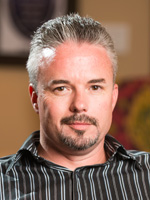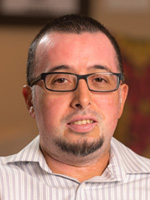What we learn by heart…
There was a time when our parents and teachers would expect us to learn things “by heart.” Remember? We might be asked to learn a poem or a song, our multiplication tables (because we didn’t have hand held calculators or smartphones to quickly check the answer to 6 X 12), the Pledge of Allegiance, our National Anthem, traveling directions, peoples’ addresses and phone numbers. Another way to define “by heart” is “by rote.” Rote is an interesting word, but perhaps the most fitting when it comes to discussing days like Memorial Day: by rote, from memory, without thought of the meaning; in a mechanical way.
There is so much more to Memorial Day, beyond what we have learned by heart. So today we thought we would share just a bit more of the history of this day, including why poppies come to mind for those celebrating the lives fallen for our freedom.
In Flanders Field the poppies blow
100 years ago this month, May 3, 1915, serving in World War I a Canadian physician Lieutenant Colonel John McCrae wrote the following poem after presiding at the funeral of a fellow soldier.
In Flanders fields the poppies blow
Between the crosses, row on row,
That mark our place; and in the sky
The larks, still bravely singing, fly
Scarce heard amid the guns below.
We are the Dead. Short days ago
We lived, felt dawn, saw sunset glow,
Loved and were loved, and now we lie
In Flanders fields.
Take up our quarrel with the foe:
To you from failing hands we throw
The torch; be yours to hold it high.
If ye break faith with us who die
We shall not sleep, though poppies grow
In Flanders fields.
You see McCrae noticed that for some reason poppies will grow even in a field serving as a graveyard; in fact historically we learned that dating back to the Napoleonic Wars [1803-1815] a poet reflected on poppies growing among the graves (according to Wikipedia: “…a writer of that time first noted how the poppies grew over the graves of soldiers. The damage done to the landscape in Flanders during the battle greatly increased the lime content in the surface soil, leaving the poppy as one of the few plants able to grow in the region.”
It was just a few years later at the end of World War I when Moina Michael, an American professor, read “In Flanders Field” and determined she would wear a red poppy each day to remember the soldiers who had died in WWI. She worked tirelessly with others and convinced the American Legion to adopt the poppy as a symbol of remembrance.
According the American Legion’s website:
The Auxiliary Poppy Program has been a staple of the organization since the Legion’s 1925 National Convention when Resolution 534 was adopted, giving the Auxiliary complete charge of the program. But it is imperative to remember that the Poppy Program is an American Legion Family event where both Legion posts and Sons of The American Legion squadrons are encouraged to partner with their local Auxiliary unit to organize and promote the program, as well as distribute poppies for donations.
Auxiliary Unit 291 in Newport Beach, Calif., recently raised $14,000 for its poppy program by mailing donation envelopes with poppies in them to all 6,000 unit, post and squadron members. The yearly mailing “is an opportunity to make a donation via the mail since not all members are able to attend meetings or events,” said Margaret Myles, Unit 291 president. “The purpose (of the poppy) is to remind our members the reason why we are The American Legion, and to honor those who have served, those who are currently serving and most importantly, those who have lost their lives in the line of service to our nation.”
Honoring our own…
Here at PACE Recovery Center we are honored to have two staff members who served in our armed forces.

Sean Kelly is a former Marine who proudly served our country. It is this background that helps him teach the Men of PACE Recovery Center how to accomplish goals, create discipline, and develop accountability. Sean’s own personal struggle with addiction allows him to meet the Clients where they are at in their own recovery, and help guide them on their recovery journey. Sean is an active member in the recovery community. His philosophy is to treat people with love, dignity and respect. It’s this mentality that allows him to create an alliance, which allows for the therapeutic process to take place between him and his Client. This relationship empowers the Client to gain the skills necessary to recover from drugs and alcohol. Sean studied at Centaur University to become a certified Chemical Dependency Counselor.

Victor Calzada joined the United States Marine Corps right out of high school in 1995. He proudly served as a heavy weapons operator. While in the service, Victor was recognized for his, honor, courage and commitment. While serving in the United States military, he learned the important characteristics of working as a team.
After his tour in the military, Victor worked for the Correctional Systems for 6 years as a Correctional Officer. Victory was known for his keen ability to listen and help them problem solve any issues they might have been experiencing. An area that Victor is passionate about is working with people who have substance abuse issues. Victor has had his own personal struggles with chemical dependency issues. He believe that the combination of opening our hearts and minds, with the right guidance, we can overcome our issues.




